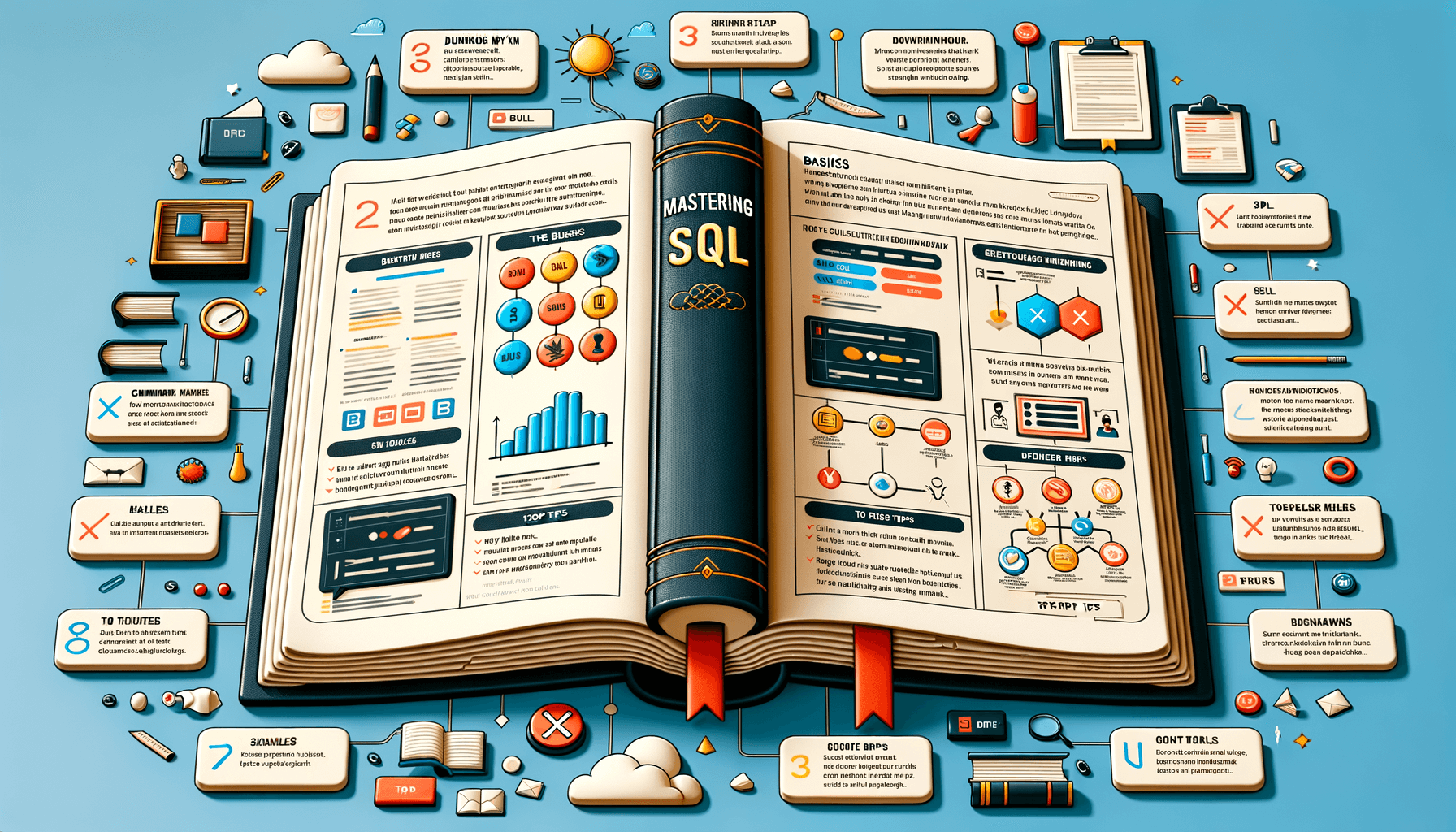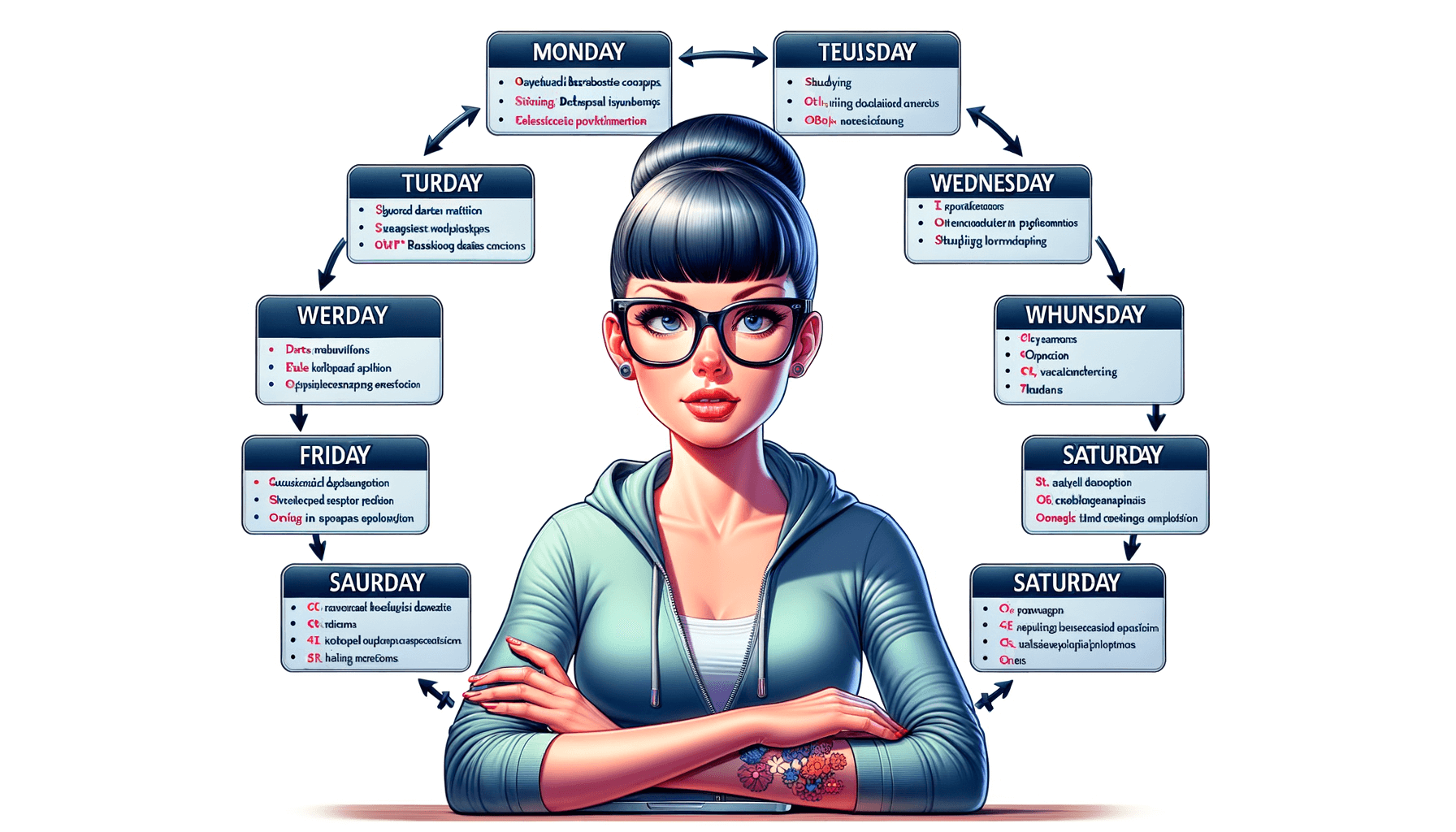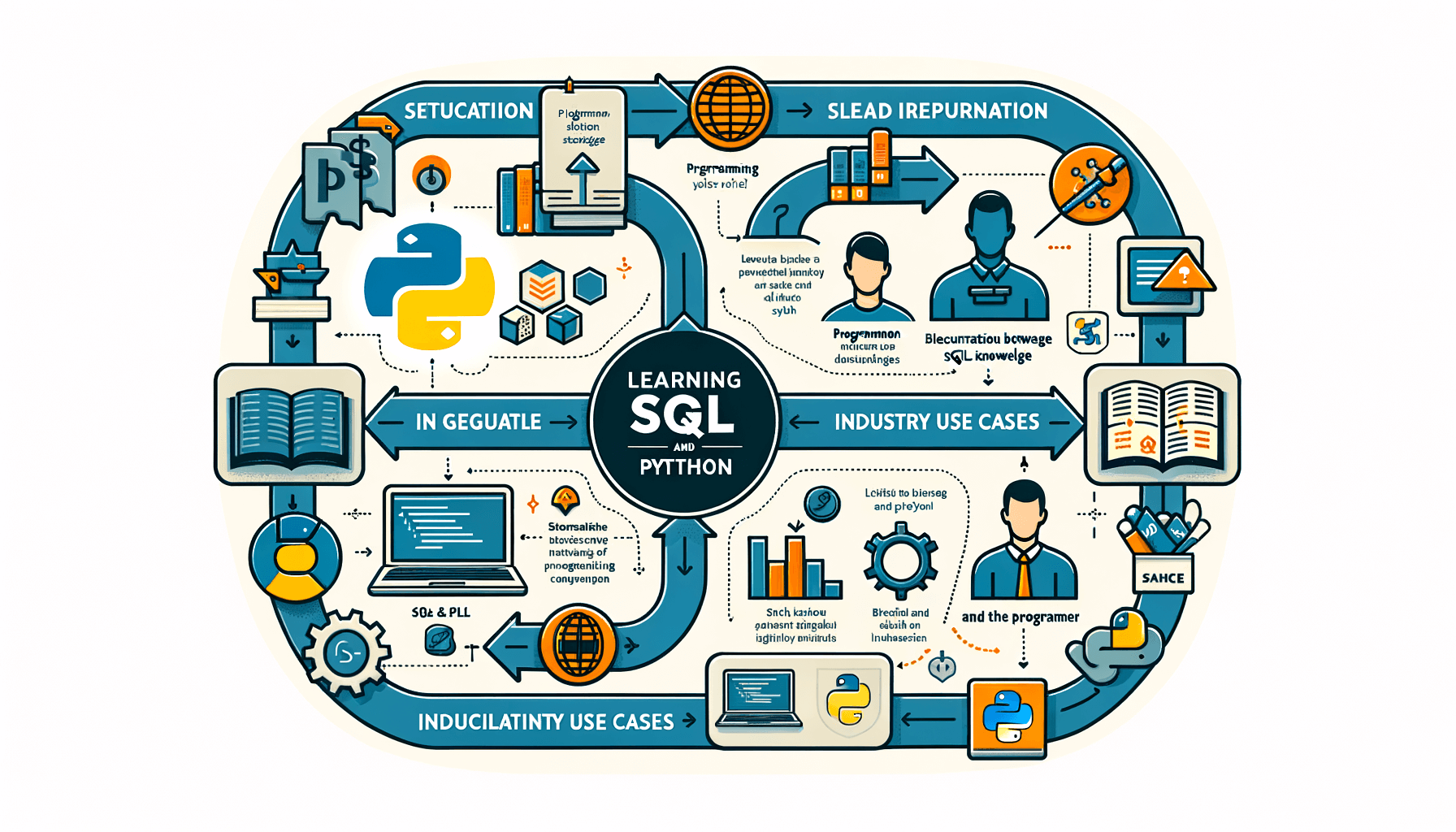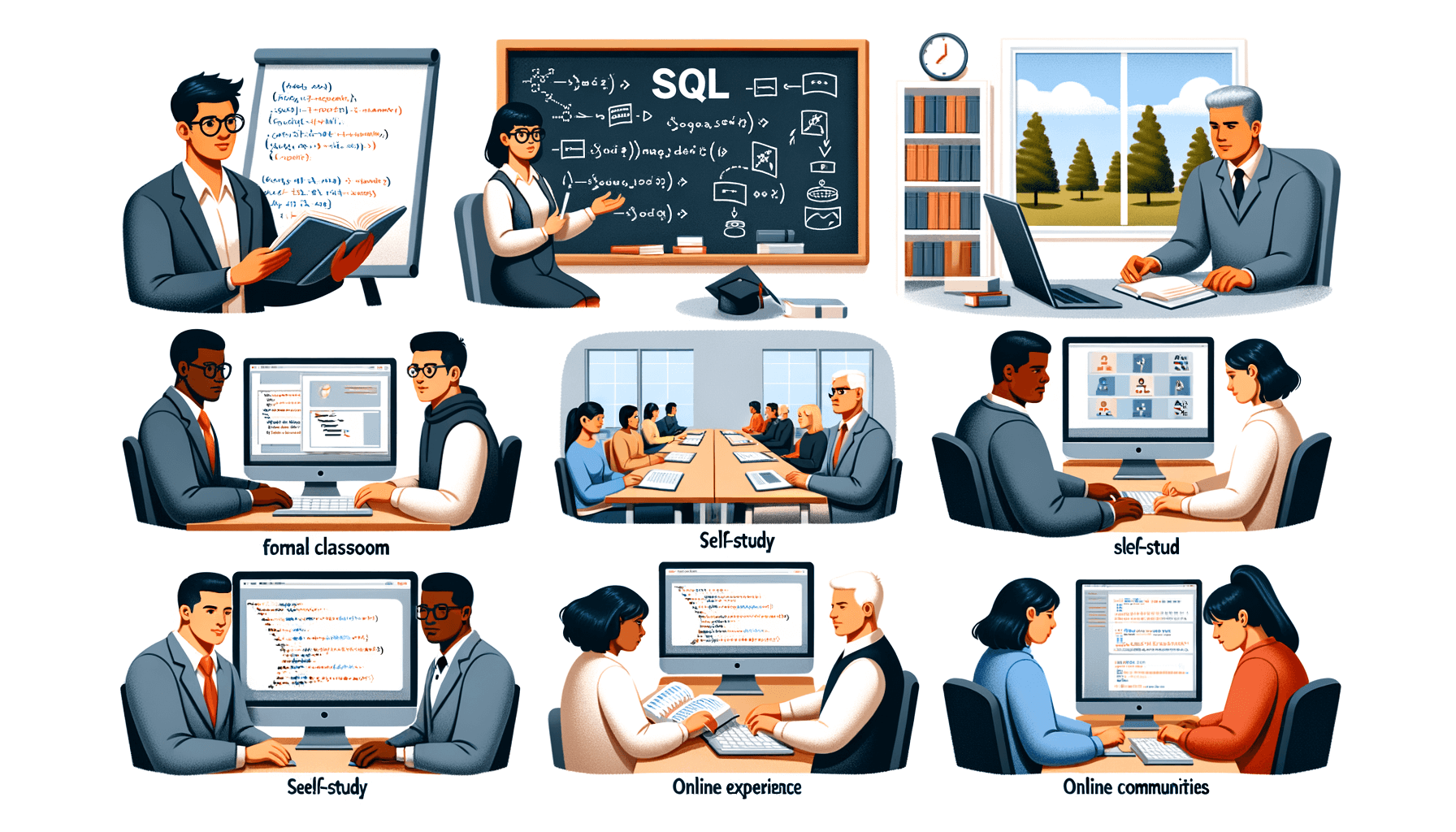A big variety of articles and resources

Is Learning SQL Hard? Debunking Myths and Offering Tips
 Sia Author and Instructor
Learn SQL
Sia Author and Instructor
Learn SQL
10 minute read
Many people think learning SQL is hard, but that's not always true. SQL, which stands for Structured Query Language, is a tool used to talk to databases. While it can seem tricky at first, many of the myths about SQL can be debunked. With the right tips and a bit of practice, anyone can learn SQL and use it well.
Key Takeaways
- SQL is not just for database admins; anyone can learn it.
- You don't need to be a programming expert to start with SQL.
- Despite what some say, SQL is still very useful today.
- Beginners may face challenges, but these can be overcome with practice.
- There are many job opportunities for those who know SQL.
Understanding the Basics of SQL
What is SQL?
SQL, or Structured Query Language, is a standard language used to communicate with databases. It allows us to create, read, update, and delete data stored in a database. SQL is essential for managing and manipulating data efficiently.
Core Concepts and Syntax
At its core, SQL uses simple commands to perform tasks. Some of the basic commands include SELECT, INSERT, UPDATE, and DELETE. These commands help us interact with the data in various ways. For example, the SELECT command is used to retrieve data from a database.
Common Uses of SQL
SQL is widely used in different fields. It is commonly used for data analysis, where we can extract and analyze data to make informed decisions. Additionally, SQL is used in web development to manage the data behind websites and applications. It is also crucial in business intelligence for generating reports and insights from large datasets.
Understanding the basics of SQL is the first step towards becoming proficient in data management and analysis.
Common Misconceptions About Learning SQL
SQL is Only for Database Administrators
Many people think that SQL is a tool only for database administrators. However, this is far from the truth. SQL is used by a wide range of professionals, including data analysts, software developers, and even business managers. Knowing SQL can help you understand and manipulate data, which is a valuable skill in many fields.
SQL Requires Advanced Programming Skills
Another common myth is that you need advanced programming skills to learn SQL. In reality, SQL is more about understanding how to work with data than about complex programming. The syntax is straightforward, and with some practice, anyone can learn the basics. You don't need to be a coding expert to get started with SQL.
SQL is Outdated Technology
Some people believe that SQL is an outdated technology, but this couldn't be further from the truth. SQL is still widely used in modern data management systems. It remains a foundational skill for anyone working with data. New technologies may come and go, but SQL continues to be relevant and important.
Challenges Faced by Beginners
Syntax and Semantics
When starting with SQL, many beginners find the syntax and semantics confusing. The structure of SQL commands can be tricky, and understanding how to properly format queries is essential. Mastering these basics is crucial for building a strong foundation in SQL.
Complex Queries
As you progress, you'll encounter more complex queries that require a deeper understanding of SQL. These can be challenging, but with practice, you can learn to break them down into smaller, manageable parts. Remember, practice makes perfect.
Integration with Other Technologies
SQL doesn't exist in a vacuum; it often needs to be integrated with other technologies. This can be daunting for beginners who are not familiar with these additional tools. However, learning how to combine SQL with other technologies can greatly enhance your skill set.
sqlskillz.com vs udemy.com: master sql basics at your own pace. no credit card required. login or sign up to start learning.
Effective Strategies for Learning SQL
Utilizing Online Resources
We can find a wealth of online resources to help us learn SQL. From video tutorials to interactive coding platforms, the internet offers numerous ways to get started. One excellent course is the Zero to PostgreSQL Junior DBA. This course provides practical SQL skills through real-world problems, hands-on projects, and expert-led training. The effort required for success is significant, but the rewards are worth it.
Hands-On Practice
The best way to learn SQL is by doing. We should practice writing queries and working with databases regularly. This hands-on approach helps us understand the syntax and logic of SQL better. We can start with simple queries and gradually move to more complex ones. Consistent practice is key to mastering SQL.
Joining SQL Communities
Being part of an SQL community can be incredibly beneficial. These communities offer support, answer questions, and share valuable insights. We can join forums, social media groups, or local meetups. Engaging with others who are also learning or are already proficient in SQL can provide us with motivation and new perspectives.
Learning SQL is a journey that requires dedication and practice. By utilizing online resources, engaging in hands-on practice, and joining communities, we can make this journey more manageable and enjoyable.
The Role of SQL in Modern Data Management
In today’s world, SQL plays a crucial role in how we manage data. It is the backbone of many data-related tasks that organizations perform. SQL helps us retrieve, update, and manipulate data stored in databases, making it essential for various applications.
When we think about SQL, we can see its importance in several areas:
- Data Analysis: SQL allows data analysts to extract insights from large datasets efficiently.
- Business Intelligence: Companies use SQL to generate reports and dashboards that help in decision-making.
- Data Warehousing: SQL is used to manage and organize data from different sources into a single repository.
Here’s a simple table that shows how SQL is applied in these areas:
| Area | SQL Application |
|---|---|
| Data Analysis | Extracting insights from datasets |
| Business Intelligence | Generating reports and dashboards |
| Data Warehousing | Organizing data from various sources |
SQL is not just a tool; it is a vital skill that enhances our ability to work with data effectively.
In summary, SQL is a powerful language that supports various aspects of modern data management. By understanding its role, we can better appreciate how it helps us in our daily tasks and decision-making processes. For those interested in becoming a data analyst, an introduction to SQL course offers hands-on projects, personalized support, and industry best practices. Instructor Eric Vanier specializes in SQL, database performance, and education.
Comparing SQL with Other Query Languages
SQL vs. NoSQL
When we compare SQL with NoSQL, we see that each has its own strengths. SQL is great for structured data and complex queries, while NoSQL shines with unstructured data and scalability. NoSQL databases are often used in big data and real-time web apps. On the other hand, SQL databases are preferred for financial systems and enterprise applications.
SQL vs. NewSQL
NewSQL aims to combine the best of both SQL and NoSQL. It offers the scalability of NoSQL while maintaining the ACID properties of SQL. This makes NewSQL a good choice for applications that need high performance and reliability. However, NewSQL is still evolving, and its adoption is not as widespread as SQL or NoSQL.
SQL vs. GraphQL
GraphQL is different from SQL in that it is designed for querying APIs rather than databases. It allows clients to request exactly the data they need, making it more efficient for certain use cases. While SQL is used for relational data, GraphQL is often used in modern web and mobile applications to interact with various data sources.
Understanding the differences between these query languages can help us choose the right tool for the job. Each has its own unique features and is suited for different types of applications.
Career Opportunities for SQL Proficient Professionals
Database Administrator Roles
For those who master SQL, becoming a Database Administrator (DBA) is a common career path. DBAs are responsible for managing and maintaining databases, ensuring they run smoothly and securely. They handle tasks like backups, performance tuning, and user access control. Gaining practical SQL skills with real-world problems can significantly boost your chances of landing a DBA role.
Data Analyst Positions
Data Analysts use SQL to extract and analyze data, helping organizations make informed decisions. They write queries to pull data from databases and create reports that highlight trends and insights. This role often involves working closely with other departments to understand their data needs and provide actionable insights. The effort required for success in this field is substantial but rewarding.
Software Development Careers
Software developers often use SQL to interact with databases within their applications. Understanding SQL can help developers create more efficient and effective software. This knowledge is particularly useful in full-stack development, where integrating the front-end and back-end systems is crucial. Hands-on projects and expert-led training can be invaluable in mastering these skills.
SQL proficiency opens doors to various career paths, each offering unique challenges and rewards. Whether you're interested in database management, data analysis, or software development, SQL is a valuable skill that can enhance your professional journey.
Are you skilled in SQL and looking for new career opportunities? Our website offers a range of courses designed to boost your technical skills and open up new job prospects. Whether you're a beginner or an advanced learner, we have something for everyone. Don't miss out on the chance to advance your career. Visit our website today and explore our course catalog!
Conclusion
In conclusion, learning SQL is not as hard as it might seem at first. Many myths make it look more difficult than it really is. By breaking down these myths and using the right tips, anyone can learn SQL. Remember, practice is key. The more you practice, the better you will get. So, don't be afraid to start learning SQL today. With time and effort, you will see that it is a useful skill that can open many doors in the tech world.
Frequently Asked Questions
What is SQL?
SQL stands for Structured Query Language. It's a language used to talk to databases. You can use it to get, change, and manage data.
Is SQL only for database administrators?
No, SQL is not just for database administrators. Many jobs, like data analysts and software developers, also use SQL.
Do I need advanced programming skills to learn SQL?
No, you don't need advanced programming skills to learn SQL. It's easier to learn than many other programming languages.
Is SQL outdated?
No, SQL is not outdated. It's still widely used in many fields, like data analysis and business intelligence.
What are some common uses of SQL?
SQL is commonly used to get data from databases, update records, and manage data. It's also used in data analysis and reporting.
How can I start learning SQL?
You can start learning SQL by using online resources, practicing with real data, and joining SQL communities for help and support.
Related Articles

Can a programmer master SQL in a week?
13 minute read

Do I still need to learn SQL if I already know Python?
13 minute read

How did you learn SQL? Did you have a teacher?
14 minute read




